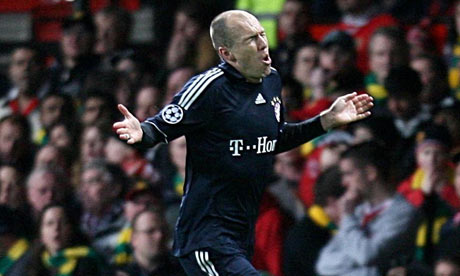
When Steve Coppell announced his resignation after just two months as Bristol City manager, the surprise resonated far beyond the usual gawpings of radio phone-ins or rolling news channel banalities.
The esteemed former Reading boss was not only stepping down from his post at a bafflingly early stage, but retiring from football altogether.
And it was Coppell's reason for taking such decisive action which shocked commentators and fans most.
The 55-year-old explained how his fading passion for the game had left him devoid of inspiration, unmoved by the prospect of leading his Bristol City players for their second match of the season.
But while, for most, an element of detachment from one's work is a prerequisite for sanity; for football fans, a sense of distance or objectivity in relation to the sport is as attractive as a steak and kidney flapjack.
Coppell had enjoyed a successful managerial career, guiding Crystal Palace and Reading to the Premier League, and earning praise for the fluent, attacking style he instilled in his teams. So why, fans asked, would somebody turn their back on this ultimate profession?
The answer lies in the nature of that question's final word.
Throughout his playing and managerial career, Coppell maintained a sense of perspective; as enjoyable as football may be, it was for him simply a job.
Such an outlook is partly influenced by Coppell's playing days, ended by injury at the cruel young age of 28.
Having had his own dream job cut short, the former England international has an acute understanding of how football is but a profession. Life goes on without it.
It is this detachment, however, which causes the chasm ripping through the sport''s heart.
Beyond the vuvuzelas, the soundtrack of this summer's World Cup was the chorus of boos.
For the usually adored likes of Wayne Rooney and Frank Lampard, a tournament-long exhibition of mediocrity saw them drown under an inescapable din of boos.

The cries of fury in South Africa, however, were no different to the tunes of discontent which ring out of from British stadia on a weekly basis.
For every player who has his name chanted by thousands, there is one who feels the wrath of his club's followers, and it is not simply because a pass intended for a team-mate has ended up in the directors' lounge.
A miss-kick or a home defeat can sometimes be grudgingly accepted, but it is the manner of failure which irks fans most.
The passion of the underperforming players is questioned, their desire to win is shrouded in doubt, and their wages are (justifiably) criticised.
Further than the obvious alienation that stems from such a gross gap in pay, the division between players and fans is intrinsically linked to the bemusement supporters felt after Coppell's resignation.
For fans, there can be no sympathy for individuals who treat as a job what is for them a passion.
While the audience vicariously endures the drama of their club's season, the protagonists treat each match as a matinee, a day in the office.
But what might be just another afternoon's work for the players of this piece is for the paying onlookers an addiction.
For disgruntled season ticket holders, the players - to whose wages they make a significant contribution - are little more than mercenaries commodifying their purest form of entertainment.
So, armed with little more than their voices and cups of Bovril, the boo is for fans the most effective way of expressing their disgust; the most direct form of bypassing the chasm between players and supporters.
The season is but a few weeks old, yet terraces nationwide are already shaking with boos.
And should the cat calls or wolf whistles lead to another resignation or retirement, this chasm will only grow wider and louder.


















